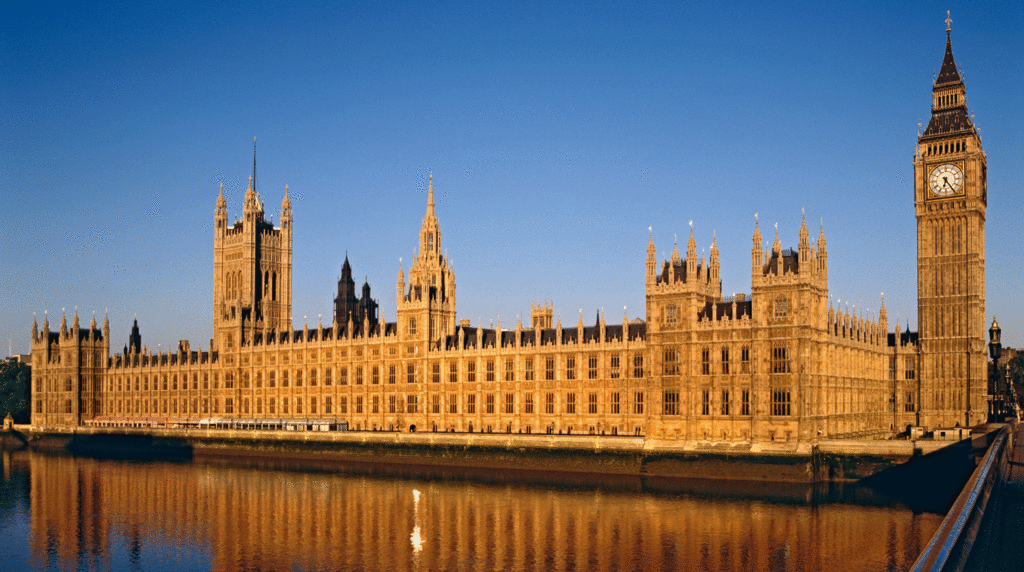In the order of importance of the world of real politics, the greatest priorities for England’s two largest parties are their respective leadership struggles. Everything must take second place until it is seen whether Theresa or Andrea emerges as leader of the Tories and until it is seen whether Jeremy or anybody else will emerge on top of the decaying compost heap that used to be the Labour Party.
Note that I refer to England’s largest parties. Neither holds sway in the remains of the other kingdoms in the UK – Scotland or Northern Ireland.
This means that the Tories will engage in meaningless, internal posturing on Brexit until they can present themselves as united under a new leader – more likely Theresa May than Andrea Leadsom.
They will postpone any serious engagement with other member states on the terms of the UK’s departure until after the point when the Tory faithful have voted – for fear of frightening the horses.
If Theresa May is elected on 10 th September, Cameron will visit the Queen that evening, tender his resignation and advise her to invite Theresa May to form a new government forthwith.
Membership of that government rather than the precise terms or conditions for Brexit will command the close attention of Tory MPs ambitious for office in the meantime.
For the benefit of the party members, Theresa May will not wobble or weaken on the principle of Brexit in the meantime.
Nor will she invoke the Article 50 procedure on her first day in office.
She will want to appoint her government and to take a firm grip on the reins of the public service and then to evaluate the options and the challenges of the UK’s departure before setting the Article 50 clock ticking.
There are two further points to be remembered.
Firstly, the EU Commission under Commission President Jean Claude Juncker has already made an ass of itself in relation to Brexit. Juncker’s oafish vindictiveness has already caused the Germans to recoil in horror and to appeal for cool heads. Germany’s Finance Minister Wolfgang Schauble’s pre-referendum federalist rhetoric has suddenly given way to a new realism concerning the deep unpopularity of the federalist project among the peoples of the member states.
The same realisation had already caused Council President, Donald Tusk, to warn about the deep unpopularity of the federalist, integrationist agenda in advance of the referendum vote.
Needless to say, the last of the “presidents”, Martin Schulz, who is President of the European
Parliament and is an integrationist member of the German SPD has still not got the message that he and people who think like him are a major part of the problem who have little to offer to its solution.
In theory, the Brexit negotiations are to be conducted on a strictly bi-lateral basis and in a process adopted by the Council on the proposal of the Commission with a nominated single negotiator or head of a negotiating team. A Belgian diplomat, Didier Seeuws, has been appointed for the purpose.
In fact, as I wrote here last week, the substance of the Brexit agreement will be negotiated secretly, and far away from Didier at the nominal negotiating table, in informal bilateral and multilateral talks.
Formal negotiations and real bargaining will carry on in different, parallel channels.
Having badly dirtied its bib by demonstrating a revanchist mind-set, the Commission under Juncker will not play a significant role in the real top level negotiations.
And Martin Schulz’s Parliament will, in the end, do what the member states through their governments at Council level agree – even if they huff and puff all the while.
Oddly, under the EU treaties, UK members of the European Parliament will be still entitled to vote to approve any agreement even though the UK government is excluded from Council meetings’ deliberations on it.
The second point to remember is Ireland’ own parlous political state. For Ireland, Brexit involves huge complications and implications.
Not merely will Irish exporters face a currency cliff if the present 10% devaluation in Sterling persists or worsens after any hedging runs out; unless there is a comprehensive free trade agreement between the EU and the UK, there will also be some form of tariff wall or walls.
Keeping the border invisible and “soft” will be achieved – if only because a hard border is an existential threat to both parts of this island.
A lot of our exports cross the UK by sea and land, either destined for the UK or for the rest of the EU. Will containers have to be sealed separately? Freight logistics will be immensely more complex in future. Component and raw material sourcing will become complex and risky.
Precisely how are we going to deal with Commission proposals for a common corporate tax base and similar proposals in the future? The UK was a potential ally in these discussions. Have we the cojones or the strength to exercise, and to stick with, our vetoes in the brave new world of the EU post-Brexit? Will our diplomacy, which so often appeared to dress up obsequiousness as mature engagement, be up to the slightly less polite business of standing your ground and keeping your back to the wall? Punching above our weight (that awful phrase) may involve a lot more bare-knuckle pugilism in future than it did when we played Robin to the now departing Batman.
Have the Dáil and the Seanad been tooled up to keep our government really accountable to us on these issues? (Answer: No)
Has our seemingly listless, rudderless government either the will or, more important, the authority or strength to act effectively in our interests in these matters?
Some might think the “new politics” are nothing more than the dying days of the old politics. Some might see close parallels between the current malaise at Westminster and the paralysis on Kildare Street – starting with the vacuum at the top.

